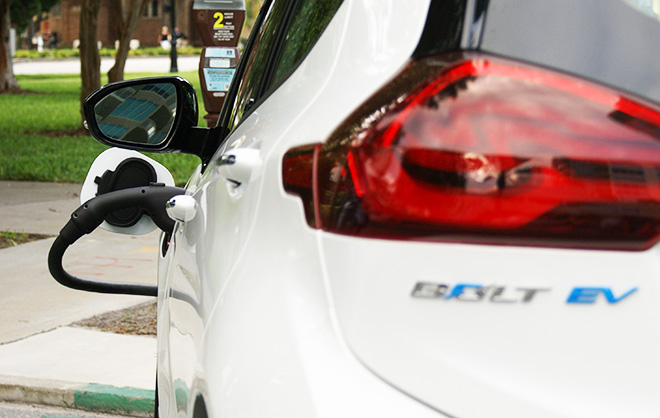Governments often use selective law enforcement to blunt the effects of unwanted policies instituted by previous administrations. Is this what’s going on with an audit of federal EV tax credit claims?
The Wall Street Journal reports that the Treasury Inspector General for Tax Administration (TIGTA), an arm of the Treasury Department and thus of the executive branch, has been investigating taxpayers who claimed the federal plug-in vehicle tax credit, and has found some $74 million worth of undeserved credits.
TIGTA says that, of the 239,422 EV tax credits claimed between 2014 and 2018, it has identified 16,510 as potentially erroneous. This number may include both honest mistakes resulting from confusion over how the credits work and intentional fraud.
There are several reasons why a taxpayer may claim a credit to which they aren’t entitled. Filers may be secondary owners (only the original buyers of new vehicles may claim the credit); they may be leasing vehicles (the credit is supposed to go to the leasing entity); or they may claim a full credit for a vehicle from a brand that is subject to a reduced credit (Tesla or GM) because it has sold over 200,000 plug-in vehicles.
The Journal, a reliable critic of all things green, sees the erroneous claims as a reason to allow the EV tax credit to expire (however, EV and renewable energy subsidies have substantial bipartisan support in Congress). The newspaper points out that tax filers are “applying for credits largely on an honor system.” Of course, the same is true of any figure on a tax form that isn’t reported on a 1099 or W-2. You can claim anything you want as a business expense or deduction, as long as you don’t get audited. It’s a certainty that errors and fraud lurk in every corner of the labyrinthine tax code. Is TIGTA also investigating undeserved tax benefits claimed by fossil fuel producers? If it did find instances of fraud, would this be a reason to end such subsidies?
Charged has long maintained that tax credits are an inefficient way to promote EV adoption – a carbon tax would be fairer and more cost-effective. However, it’s better than nothing, and EV-bashers’ arguments against it tend to be disingenuous. As the WSJ helpfully points out, 80% of the beneficiaries are households with $100,000 annual incomes, and (Horrors!) half of them are Californians. But this misses the point. The demand-side tax credits are intended to work together with supply-side ZEV mandates to allow automakers to build the economies of scale that will enable them to produce plug-in vehicles for the mass market. And, while the credits do benefit high-income car buyers who don’t really need the breaks, they also benefit auto industry workers, who are soon going to need all the help they can get.
Source: Wall Street Journal

















































